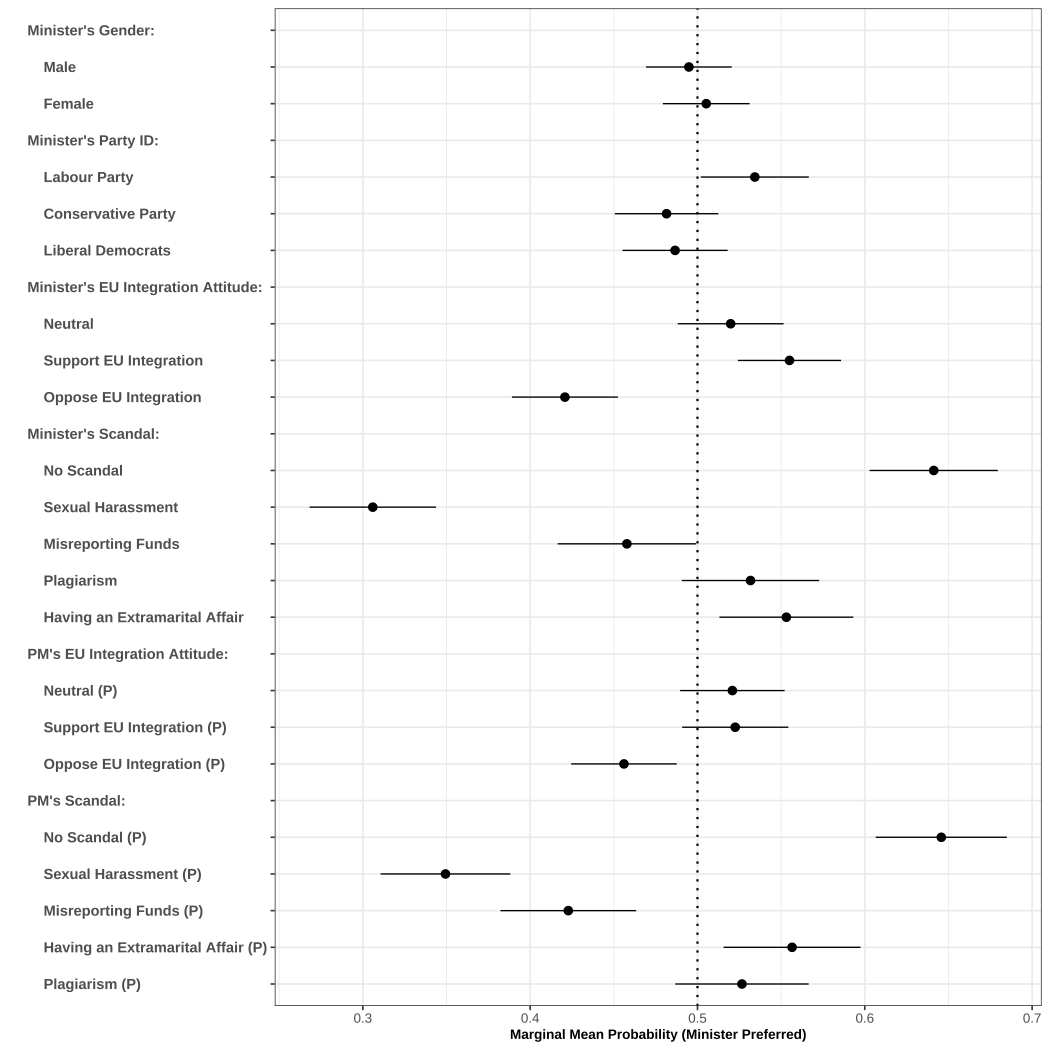Consider Your Companions Carefully: How Voters Perceive (Coalition) Governments’ Poor Valence Images?

Numerous studies of comparative political behavior examine how voters perceive parties’ ideological positions on various policy issues, either in a standard uni-dimensional space or on single issues. These studies assume these ideological positions to be representative of the entire governing coalition, classifying the government as a single unitary. While a common assumption when assessing coalition governments’ ideological positions, it is unclear whether this logic of shared accountability holds for voters’ perceptions of valence. To fill this gap, I use a conjoint experiment to assess the perceptual influence of valence issues on coalitional accountability. Overall, my results show that unlike standard left-right ideological positions, voters project the prime minister’s and (junior) cabinet members’ low valence bidirectionally onto each other. This research has implications for the prime minister’s selection process for (junior) cabinet members and junior parties’ own calculus of whether to participate in a coalition or not.
Keywords: coalition politics, voter perceptions, valence issues, conjoint experiment
The paper can be downloaded here.
Pre-registered plan can be reached here.
Data and replication codes could be reached here.